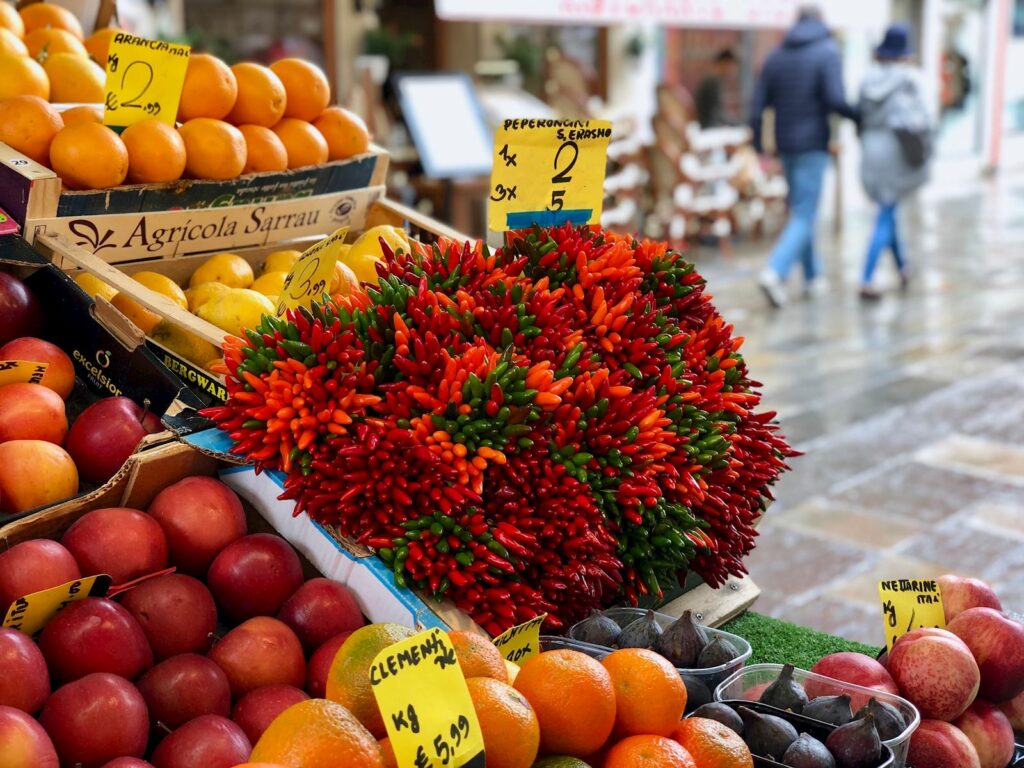
Even the most seasoned traveler will scratch their head when it comes to bringing food products back into the U.S., and it seems the rules are always changing. It’s confusing and frustrating to have food or a souvenir taken away by a customs agent! The reason for strict rules is that certain items can harbor an invasive pest or disease that could badly impact crops, livestock, and the environment at home, not to mention the economy. This week we address this topic so you can avoid unhappy surprises upon return from your next vacation abroad and to Hawaii.
Declaring items- All travelers coming back to the U.S. must declare meats, fruits, vegetables, plants, seeds, soils, and animals. A customs agent will examine the items and determine what can enter. You should also say if you’ve been on a farm or near livestock abroad due to diseases such as foot-and-mouth and mad cow found in many countries. It may seem unimportant to slip in a few items, but U.S. agriculture depends on everyone following the rules. People who are caught violating customs laws are also subject to hefty fines up to $10K and delays – so don’t’ risk it!
What items are likely to be admitted? This depends a lot on which countries you’ve visited. No meat or meat products such as bouillon, soup mixes, etc. can come in. Generally, many cheeses, baked goods, candy, coffee, tea, condiments, vinegars, oils, packaged spices and honey are admissible if they don’t contain meat or poultry. Spices are permitted if not from the citrus family, as is alcohol in small quantities (one liter). Nuts typically are approved if cooked or processed; raw nuts are iffy especially if the shell isn’t removed. The key is to mark it down and allow the customs agent to determine which products are safe to enter.
Items that will get extra attention- Many fresh, dried, and canned meats and meat byproducts are prohibited. A sure practice is to consume your raw fruits and vegetables before returning and leave the flowers behind. Plant parts intended for growing, any types of organisms, or soils are a no-go. Hunting trophies are also severely restricted.
What about Canada and Mexico? The rules for items grown in Canada and Mexico are slightly more relaxed than other places. This includes many fruits and vegetables but with several exceptions. For example, tomatoes and bell peppers are prohibited from Canada. Several fruits are restricted from Mexico including stone fruit, apples, mangoes, oranges, guavas, and limes. Avocadoes must be peeled, halved, have the seed removed, and in liquid or a vacuum-sealed bag.
Hawaii- Because they could harbor a dangerous stowaway, an invasive pest or disease, you must present all food, plants, and other agricultural items to the USDA inspector at the airport before you leave Hawaii. If your items are generally allowed, the inspector will check them to make sure they are free from pests and disease before you begin your trip to the U.S. mainland. Save this link for future reference when coming from Hawaii to the US Mainland, AK and Guam.
Declare all your agricultural and food items and let the customs inspector decide what’s safe to enter to protect U.S. agriculture. Do you have questions or other advice that we’ve left off? Leave us a note on Facebook.

 My goal is to simplify travel-planning through an equal exchange process where I acquire your ideas and expectations for your trip relieving you of the worry, hassle, stress and time that accompanies Do-It-Yourself planning.
My goal is to simplify travel-planning through an equal exchange process where I acquire your ideas and expectations for your trip relieving you of the worry, hassle, stress and time that accompanies Do-It-Yourself planning.